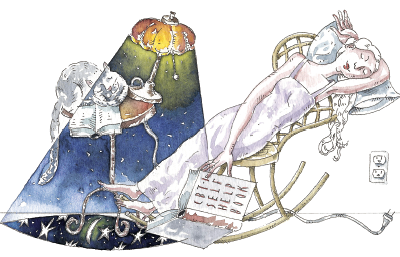The American College of Physicians (ACP) recommends cognitive-behavioral therapy for insomnia (CBT-I) as first-line therapy for chronic insomnia.
The recommendation came in a new clinical practice guideline published online in the Annals of Internal Medicine in May. A team led by Amir Qaseem, M.D., who directs the ACP’s Department of Clinical Policy, prepared the guideline report.
CBT-I improves sleep and daytime functioning in both the general population of adults and older adults with chronic insomnia disorder, the guideline said.
ACP based its recommendations on evidence of efficacy demonstrated in studies of psychological, behavioral, and pharmacological therapies for chronic insomnia and of complementary and alternative insomnia treatments. The reviews, funded by the Agency for Healthcare Research and Quality, examined results from randomized, controlled trials of at least four weeks of insomnia treatment in adults aged 18 years and older published in English from 2004 through September 2015. The reviews were published online with the guideline.
Evidence to compare CBT-I and pharmacologic treatment directly is insufficient, the committee found. “However,” it noted, “because CBT-I is noninvasive, it is likely to have fewer harms, whereas pharmacologic therapy can be associated with serious adverse events.”
Thus, the committee concluded, “CBT-I provides better overall value than pharmacologic treatment.”
An estimated 6 to 10 percent of American adults meets DSM-5 diagnostic criteria for insomnia disorder, the guideline noted. These individuals report they have had trouble falling or staying asleep at least three nights a week for three months or more. They often awaken too early and feel unrefreshed by sleep. More women than men are diagnosed with chronic insomnia; the disorder also occurs more often in older adults. Insomnia coexists with many mental and physical disorders.
People with persistent insomnia frequently complain of fatigue, poor cognitive function, mood disturbance, and distress or difficulty with daytime performance.
CBT-I combines several nonpharmacological interventions to help patients learn strategies to enhance sleep, examine beliefs and practices that hinder sleep, and adopt behaviors to promote sleep. CBT-I improves sleep and daytime functioning in 70 to 80 percent of treated persons, often without supplemental medication, according to an accompanying editorial. Patients generally maintain gains after completing treatment and understand how to manage insomnia if it recurs.
CBT-I usually is provided in individual or group sessions lasting four to eight weeks. Face-to-face intervention has the greatest evidence of efficacy, the editorial said, but telephone and web-based programs may help alleviate the current shortage of practitioners. Self-help books and videos also offer CBT-I instruction.
If CBT-I alone is not effective, ACP advises clinicians and patients to discuss the benefits, harms, and costs of short-term pharmacological treatment and decide together whether to add on such treatment.
Hypnotic medications have been linked to exacerbation of depression and suicidal ideation in people with depressive disorders, cognitive and behavioral changes, and possible driving impairment and motor vehicle accidents.
“Medications should ideally be used for no longer than four to five weeks, while the skills learned in CBT-I can manage insomnia over the longer term,” ACP President Wayne Riley, M.D., said in a news release summarizing the guidelines.
“Before continuing drug therapy,” Riley said, “doctors should consider treatable secondary causes of insomnia such as depression, pain, enlarged prostate, substance abuse disorders, and other sleep disorders like sleep apnea and restless legs syndrome.”
In patients starting CBT-I, symptoms may worsen before sleep improves, Roger Kathol, M.D., an adjunct professor of internal medicine and psychiatry at the University of Minnesota, and Todd Arnedt, Ph.D., an associate professor of psychiatry at the University of Michigan Medical School, noted in an accompanying editorial. “Support and encouragement to continue, despite initial adversity,” they wrote, “can be the difference between CBT-I success and failure.” ■
“Management of Chronic Insomnia Disorder in Adults: A Clinical Practice Guideline From the American College of Physicians” can be accessed
here. “Cognitive Behavioral Therapy for Chronic Insomnia: Confronting the Challenges to Implementation” is available
here.

